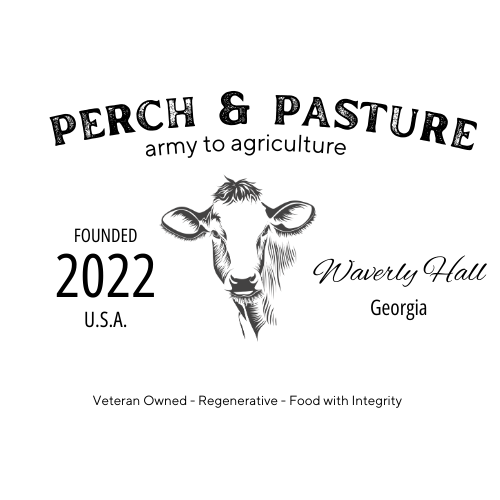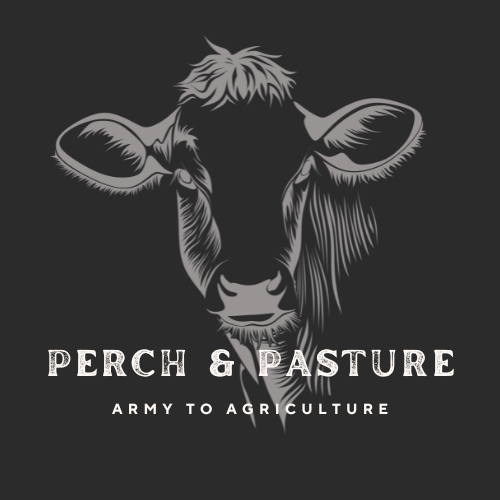
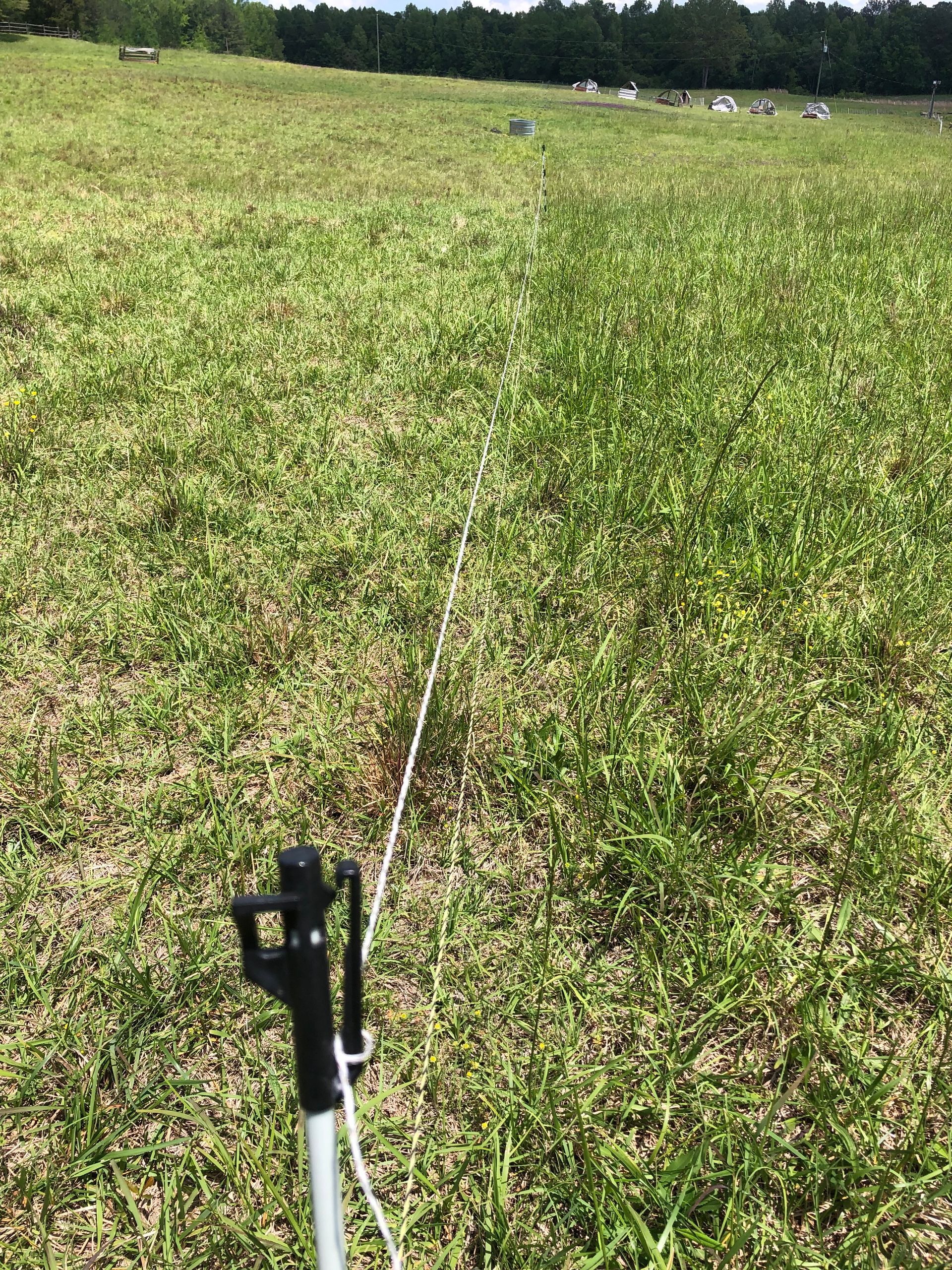
Rotational grazing is a sustainable livestock management technique that involves moving animals between paddocks to optimize forage growth and soil health. Using poly wire, solar chargers, and stick-in posts, you can easily set up a flexible system.
Setup:
- Poly Wire: Lightweight and adjustable for creating temporary fences.
- Solar Chargers: Eco-friendly power sources for keeping fences electrified.
- Stick-in Posts: Portable posts for supporting poly wire, allowing easy paddock adjustments.
Our System: We have divided our pasture into three main sections. Within each section, we rotationally graze, moving animals frequently to new areas. Each animal group has access to housing and shade, ensuring their comfort and well-being.Although this approach takes more time and effort, the outcomes are well worth it. Within two years of farming full-time, we have already seen significant improvement and growth in both our soil and animals.
Benefits:
- Forage Quality: Prevents overgrazing, promoting nutrient-rich plant growth.
- Soil Health: Enhances soil structure, water retention, and microbial activity.
- Animal Health: Provides fresh pasture regularly, reducing parasites and improving health.
- Sustainability: Promotes efficient land use and reduces the need for chemical inputs.
This method mimics natural grazing patterns, resulting in healthier pastures and livestock.
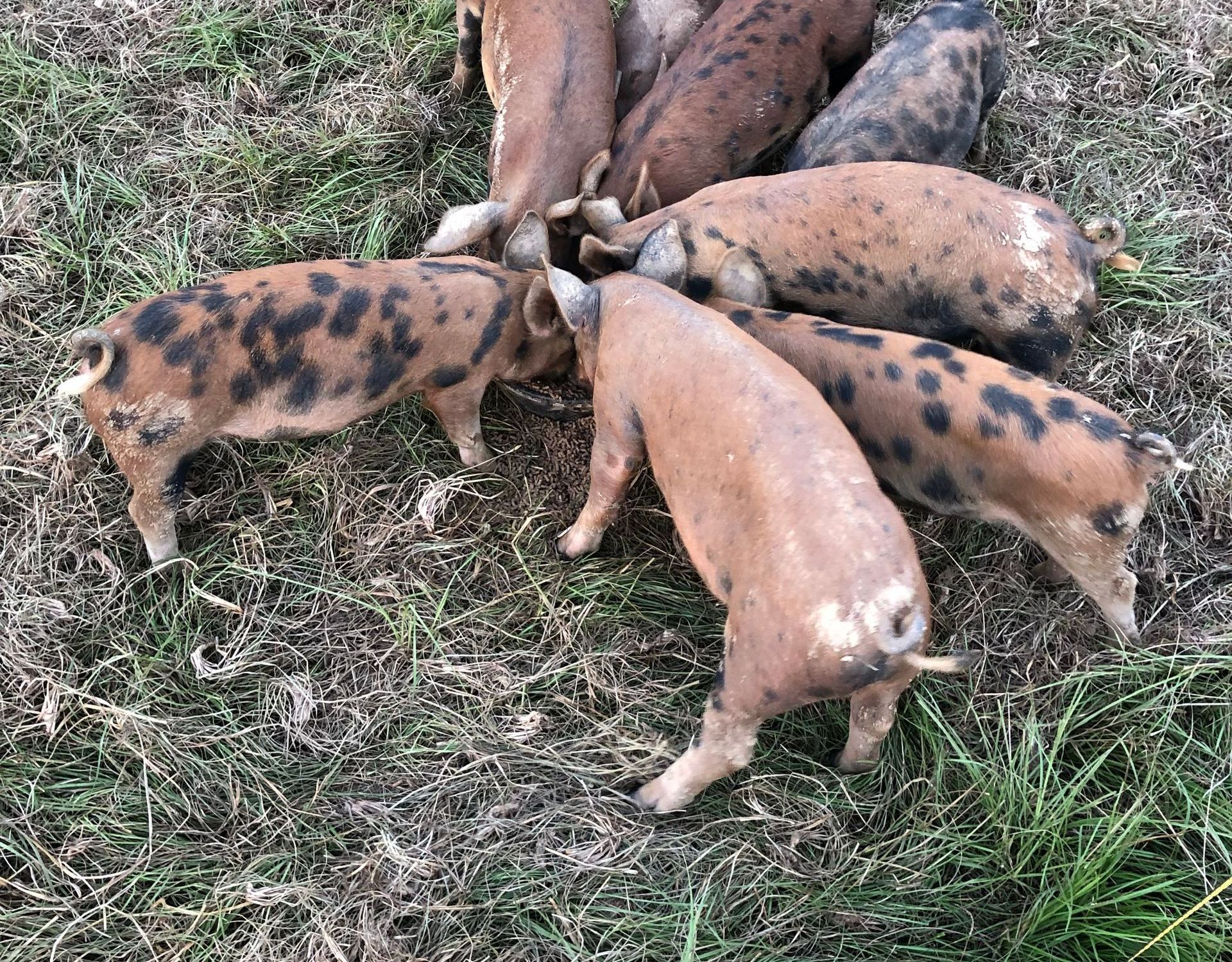
Feed:
While all our animals are out on pasture, some livestock like poultry, rabbits, and pigs require additional nutrition. We source our feed exclusively from Tucker Milling and use only their NatureCrest line of feed. Learn more about Tucker Milling Naturecrest here.
Poultry:
We customize our feed depending on the time of year. It is a mixture of layer pellets and 6-way scratch. Chicks receive chick starter. It is available as free choice while they free range in the pasture.
Pigs:
Our pigs receive swine feed along with all of our table scraps and garden extras—never anything processed!
Rabbits:
Our rabbits receive rabbit feed that meets all of their nutritional needs.
Minerals:
All of our minerals are from Redmonds Agriculture. We love that we can tailor minerals based on species. All livestock have access to free-choice minerals.
Cattle: Receive 10 Fine w/ Garlic and Beef Mineral, plus conditioner for the dairy cows.
Goats: Receive Goat Mineral and Selenium. We give them options, and they always know what they need.
Watering:
While cows always have access to the lake, we ensure they have fresh water as well. We use well water that is filtered and restructured, which benefits our livestock's health and enhances the taste of our products, especially the eggs.
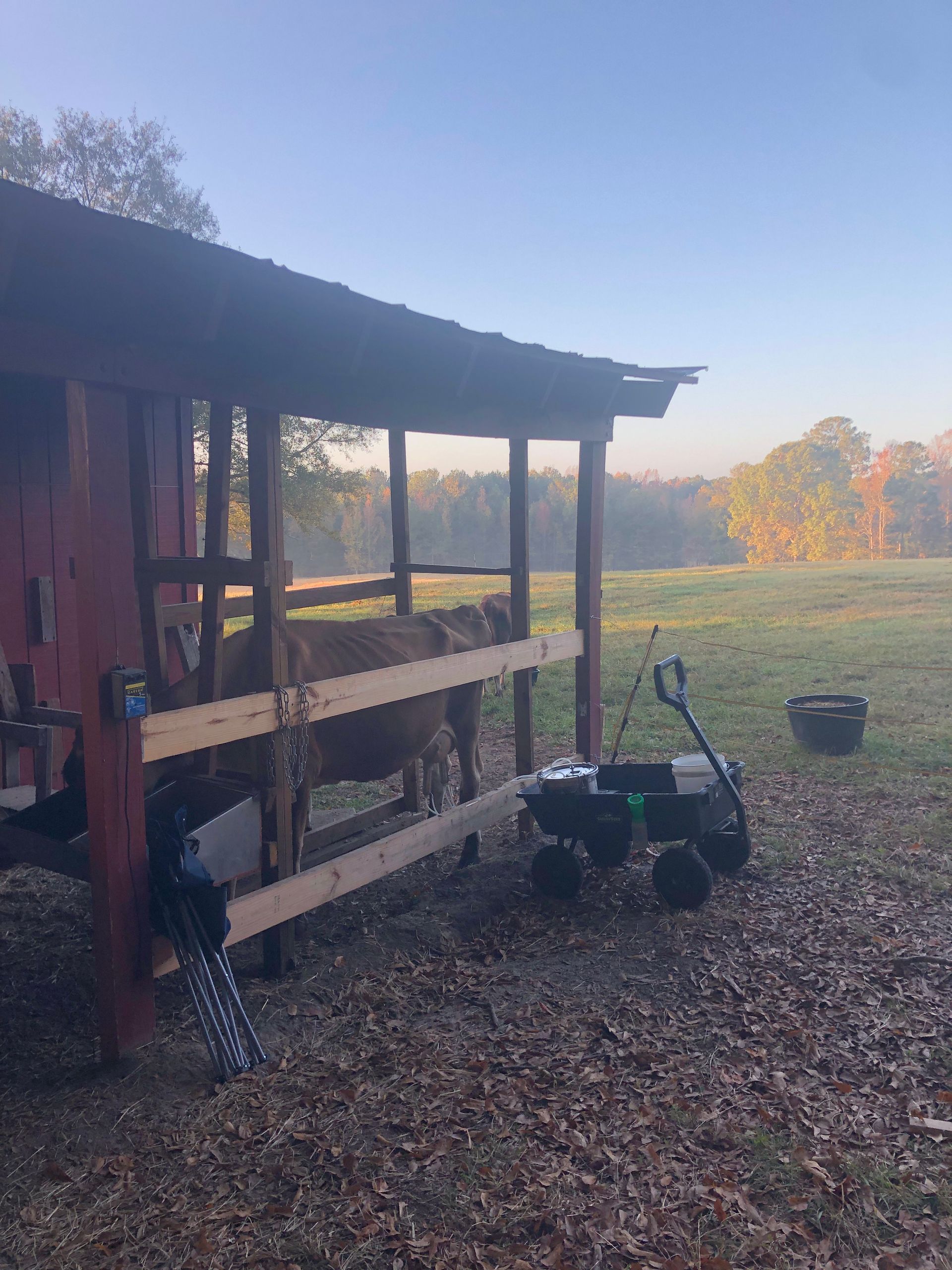
We believe in the benefits of calf/kid sharing, which promotes natural bonding, healthier calves, and improved milk production. Each morning, our dairy cows come up from pasture to the milking stall to be milked. Their udders are cleaned with an iodine solution, and with soap and water if necessary. If we are calf sharing, the calf gets one side and we milk from the other.
- Feed: Our dairy cows receive alfalfa (pellets or rehydrated, depending on the season and their preferences). This helps to increase their production and maintain their body composition, as dairy cows put all their calories into milk, unlike beef cattle that put theirs into fat stores.
- Equipment: We use a milking machine to ensure sanitation. All equipment is sterilized with soap, hot water, and ozone to maintain the highest hygiene standards.
Goats:
We use a mobile milking station for our goats, allowing us to milk them without having to move them across pastures. This is especially beneficial since our goats are always testing the fences; keeping the milking station within their paddocks ensures consistency and convenience. We hand milk our Nigerian Dwarfs, as their small teats make machine milking impractical. The same udder cleaning practices apply to our goats as we use for our dairy cows. They also receive alfalfa (pellets or rehydrated) while in milk.
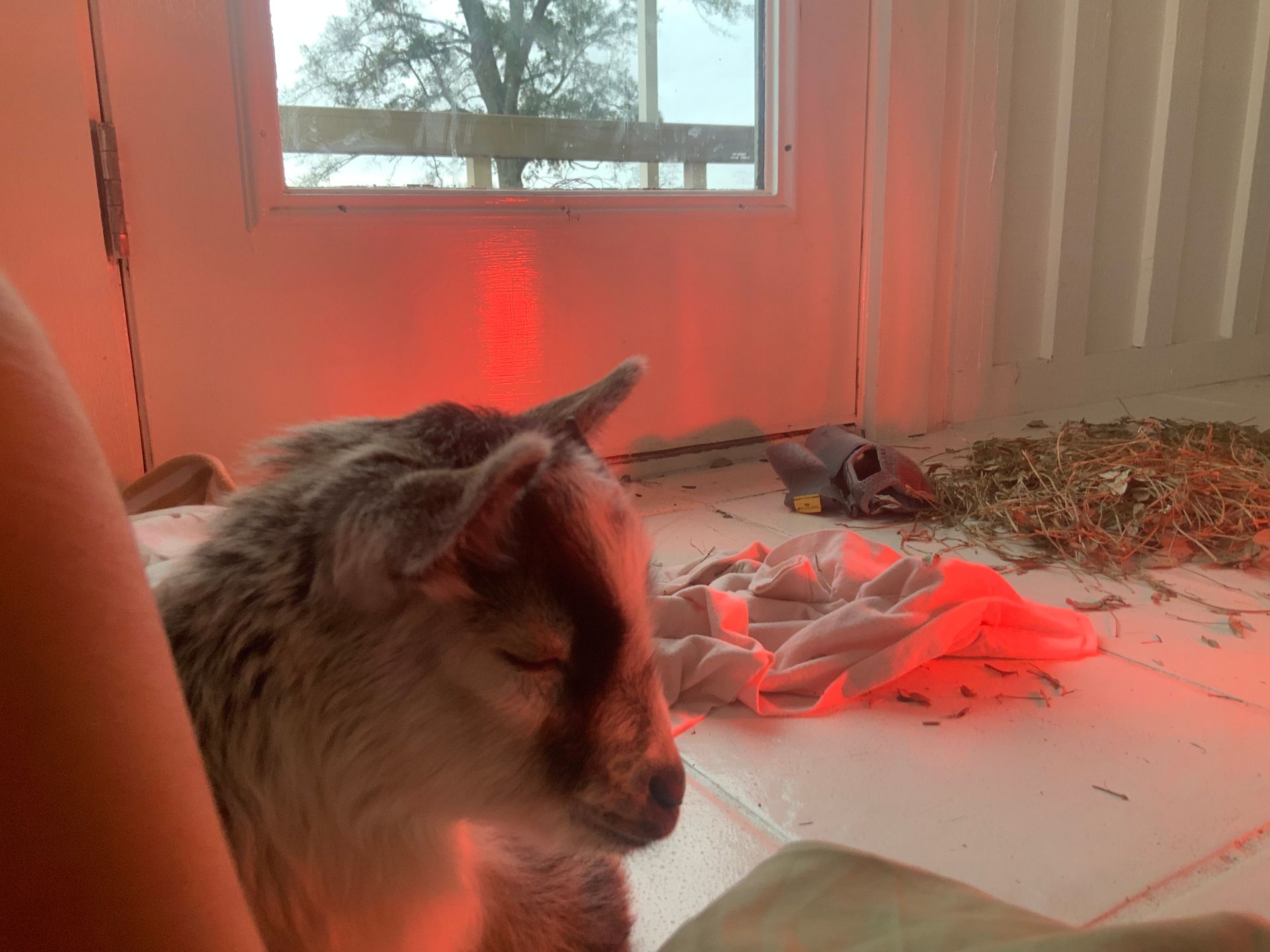
We take a holistic approach to animal care, utilizing remedies that we would use ourselves. These include herbs, tinctures, Activ Skin Repair, red light therapy, ozone, and more. If we ever need to use medications, those animals are pulled out of production for the public. We believe in finding a balance and recognizing the appropriate time and place for each treatment. For professional veterinary care, we rely on the expertise of the Auburn Large Animal Teaching Hospital.
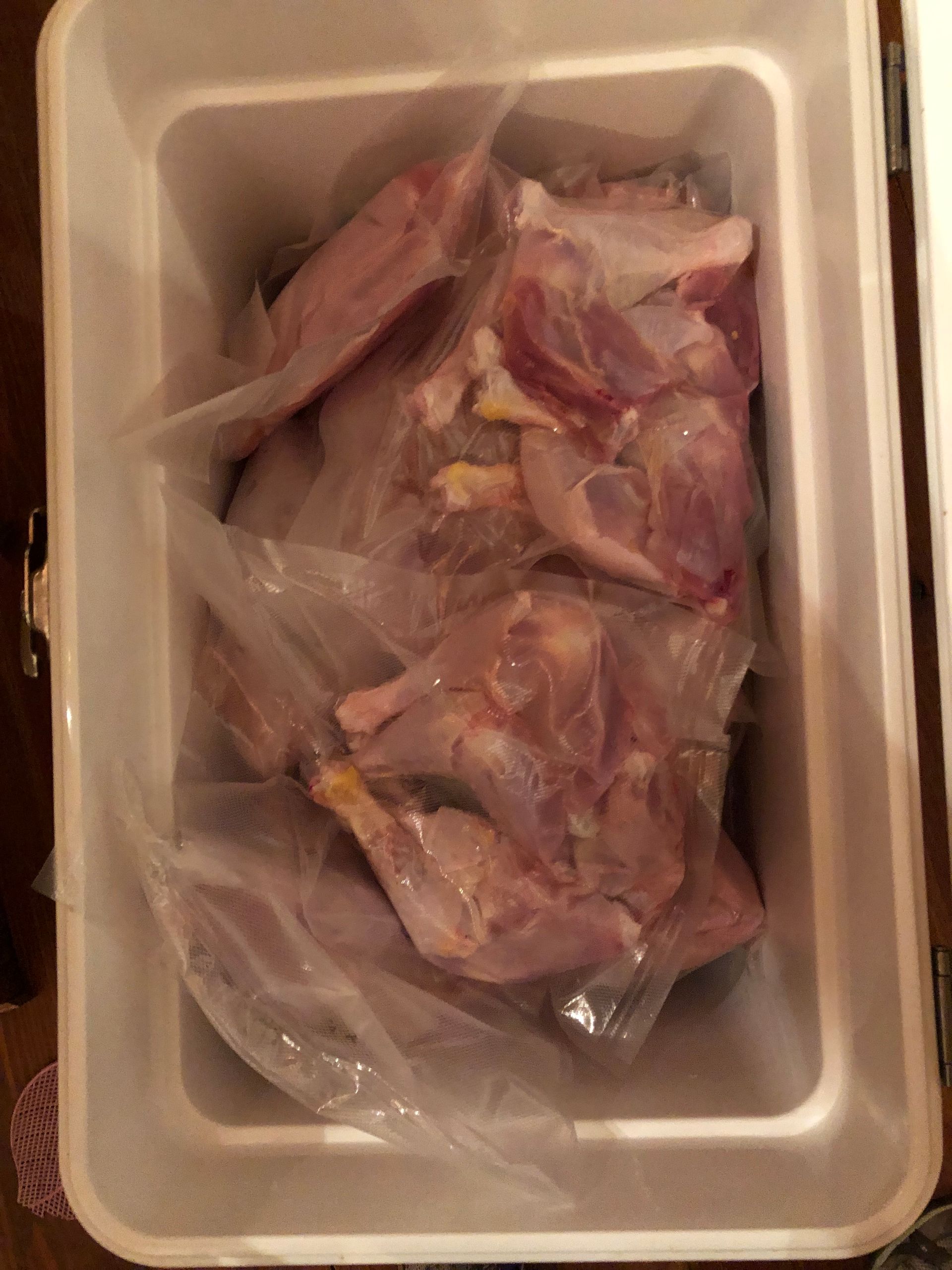
We take pride in the humane and respectful processing and butchering of our livestock. On-farm, we handle the processing and butchering of our chickens using humane methods of dispatch. Any chickens sold to the public are USDA certified through Atlanta Poultry.
For pigs and cattle, we entrust Russell County Butchery with their processing, butchering, and packaging needs. Their expertise ensures the highest quality cuts and products for our customers.
Pick-Up Locations
On-Farm | Waverly Hall, GA | Fort Moore, GA | Columbus, GA |
Ft. Mitchell, AL
HAVE YOU HERD?
Sign-up for our newsletter to be the first to know about upcoming events, restocks, early releases and more.
We will get back to you as soon as possible.
Please try again later.
All Rights Reserved | Perch & Pasture Co.
